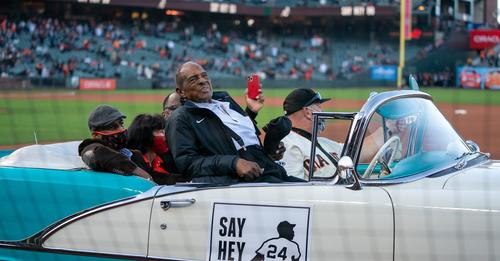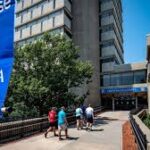The San Francisco Giants will open Oracle Park to the public on Thursday from noon to 8 p.m. for a free program paying tribute to honor Willie Mays and the Negro Leagues. Mays, who died in Palo Alto on Tuesday at the age of 93, played for the Giants from 1951 to 1972 — during which the baseball team moved from New York to San Francisco. Mays previously played for the Birmingham Black Barons of the Negro American League.
Oracle Park, located at 24 Willie Mays Plaza, will open at noon and the ballpark’s scoreboard will begin to televise a game between the Giants and the St. Louis Cardinals at Rickwood Field in Birmingham, Alabama, at 4:15 p.m. Pacific time.
Who was Willie Mays?
Willie Howard Mays Jr.nicknamed “the Say Hey Kid”, was an American professional baseball center fielder who played 23 seasons in Major League Baseball (MLB). Regarded as one of the greatest players ever, Mays ranks second behind only Babe Ruth on most all-time lists, including those of The Sporting News and ESPN. Mays played in the National League (NL) between 1951 and 1973 for the New York / San Francisco Giants and New York Mets.
The Negro Leagues Museum issued this statement on Mays’ death:
“All of us at the Negro Leagues Baseball Museum are devastated by the news of the passing of the great Willie Mays. Willie so beautifully represented the heart and soul of everything that made the Negro Leagues special on the road to becoming a Hall of Famer and in the hearts and minds of many, the greatest Major Leaguer of all time. While our hearts are heavy, we’ll remember and celebrate him for the unbridled joy he brought to the game! We extend our heartfelt condolences to the Mays family and his legion of fans worldwide.”
KMBC spoke to fans visiting the Negro Leagues Baseball Museum.
“I went to school right across from where his folks were living,” said Willie Robertson. “He got that money and came to Birmingham and built his folks a great big house right across from the school we went to. We were all very proud of him.”





